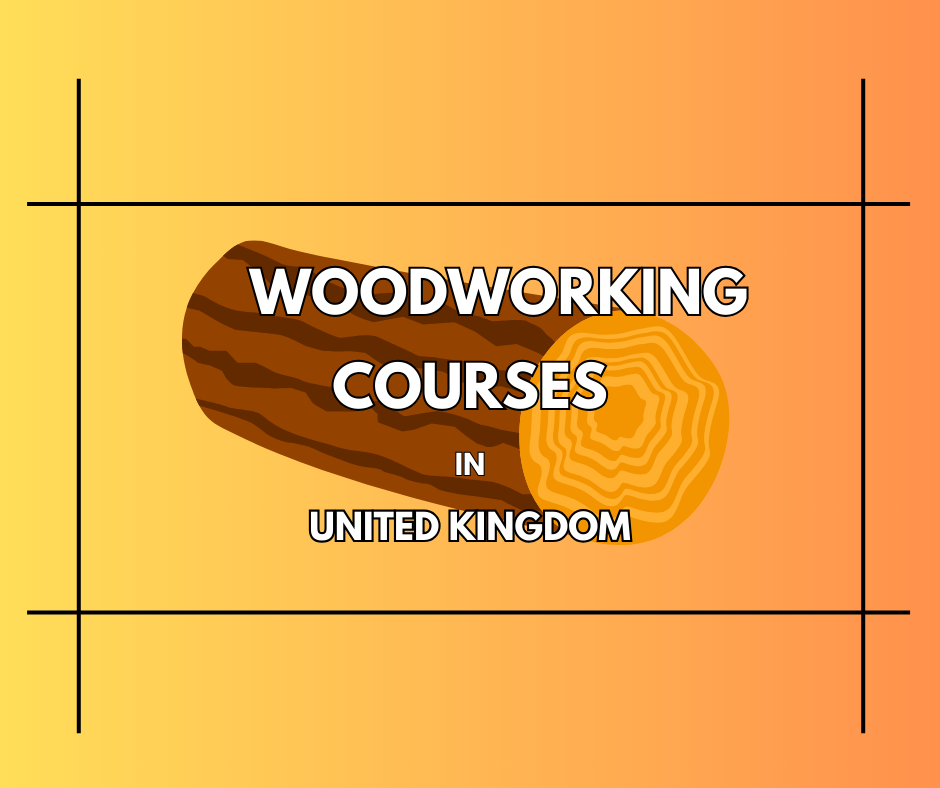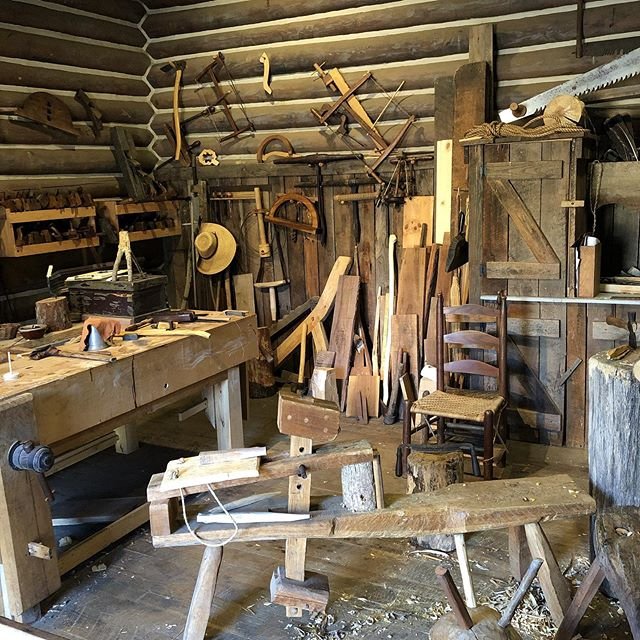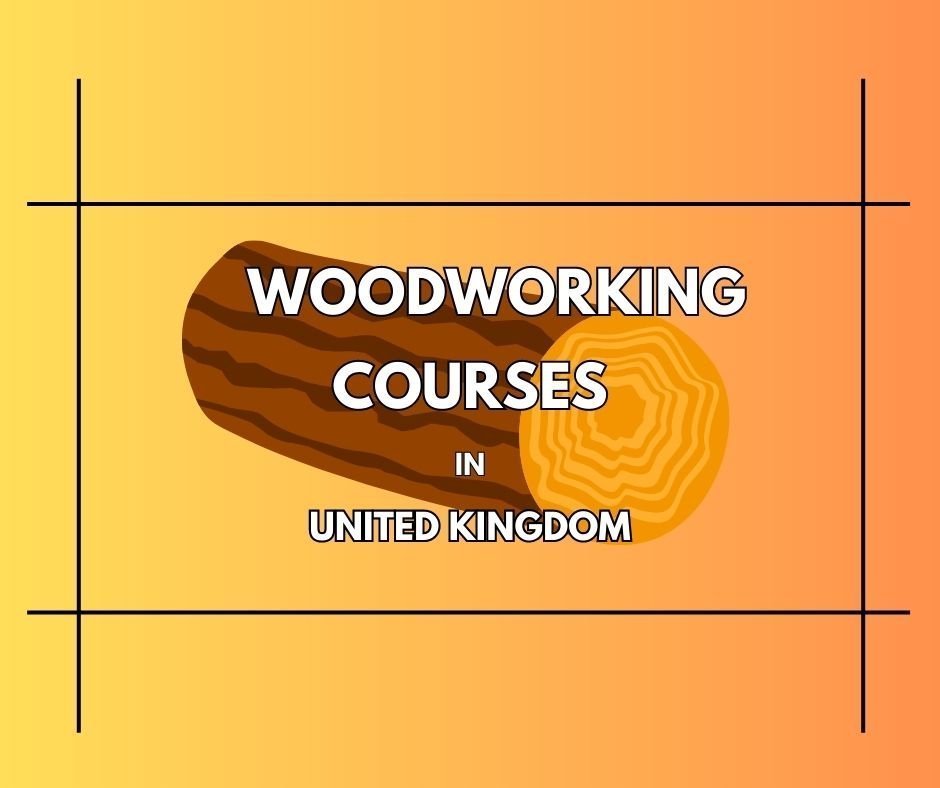Woodworking Course In United Kingdom

Woodworking presents a magnificent avenue for acquiring novel proficiencies, crafting exquisite artifacts, and finding solace. If you have an interest in mastering the art of woodworking, the United Kingdom offers an array of diverse woodworking courses that cater to varying skill levels.
Delve into this comprehensive discourse encompassing woodworking courses within the United Kingdom :
The Essence of Woodworking Courses
A woodworking course serves as an educational program designed to impart the skills and techniques of woodworking. It encompasses an extensive range of topics, including but not limited to:
- Foundational woodworking techniques such as sawing, planing, and drilling
- Promoting safety within the woodworking workshop
- Understanding the characteristics and attributes of various wood types
- Crafting woodworking projects such as furniture, cabinets and toys
Diverse Varieties of Woodworking Courses
Within the United Kingdom, a combination of carpentry courses takes care of unmistakable socioeconomics. Some courses are tailored to novices while others are geared towards seasoned woodworking practitioners. The duration of these courses also varies with options ranging from brief one day workshops to more extensive programs spanning several weeks or even months.
Locating Woodworking Courses

Prospective students can find woodworking courses offered at numerous establishments across the United Kingdom. Community colleges, adult education centers & museums commonly provide such courses. Private woodworking schools and workshops also offer specialized programs for aspiring woodworkers.
Selecting the Ideal Woodworking Course
When embarking on the journey of choosing a woodworking course several crucial factors warrant consideration :
Assessment of Skill Level :
Beginners should gravitate towards courses tailored to their proficiency level while those more well versed in woodworking may opt for more challenging programs.
Course Curriculum :
It is essential to ensure that the course curriculum aligns with your specific interests and desired learning outcomes.
Duration of the Course :
If time constraints are a concern, shorter courses may be preferable. Conversely, those with ample time can immerse themselves in more protracted courses thereby gaining greater hands on experience.
Financial Considerations :
Pricing structures for woodworking courses can vary significantly. It is advisable to factor in the course fees while making a well informed decision.
Advantages of Enrolling in a Woodworking Course
Embracing the opportunity to partake in a woodworking course provides an array of benefits. Engaging in woodworking enables individuals to:
- Cultivate new proficiencies and expand their skill set
- Engender the creation of visually stunning objects
- Unwind, destress, and find solace in the craft
- Forge new connections and foster camaraderie with fellow enthusiasts
- Enhance hand-eye coordination through hands-on practice
- Develop critical problem solving abilities
- Attain a profound sense of accomplishment
Here are the Woodworking Courses in the United Kingdom listed :
1. Chippendale International School of Furniture :
Located in Edinburgh they offer various woodworking courses for beginners and advanced learners.
2. Tom Trimmins Woodwork :
Situated in London this workshop provides woodworking courses including one day workshops & weekend courses for different skill levels.
3. London Woodwork Classes :
Another workshop in London offering diverse woodworking courses like one day workshops and evening classes suitable for individuals with varying levels of expertise.
4. The Goodlife Centre :
Based in London they offer woodworking courses for all skill levels ranging from beginners to advanced practitioners. They also have specialized courses designed for children.
5. The London School of Furniture Making:
Located in London this prestigious school offers woodworking courses including a comprehensive one year diploma program allowing students to gain extensive expertise in the craft. These courses provide an excellent opportunity to learn & enjoy woodworking regardless of your skill level.
In Conclusion
For those intrigued by the art of woodworking, the United Kingdom offers a plethora of woodworking courses. These courses not only facilitate the acquisition of new skills but also enable the creation of exquisite objects and provide a haven for relaxation. So why delay? Locate a woodworking course in close proximity and embark on your woodworking journey today.
The Joiner’s Journey: Unveiling the World of Woodworking Courses
The rhythmic tap of a hammer, the fragrant sawdust swirling in the air, the satisfaction of shaping raw wood into a beautiful creation – woodworking is a craft that beckons to the creative soul. Whether you’re a carefully prepared DIYer or an inquisitive beginner, improving your abilities through a carpentry course can raise your energy to an unheard of level. But with options galore, navigating the world of woodworking courses can feel like navigating a dense forest. Fear not, fellow wood-whisperers! This comprehensive guide will serve as your trusty compass, illuminating the path to finding the perfect course for your woodworking journey.
Charting Your Course: Defining Your Woodworking Aspirations
Before casting your net for the ideal course, take a moment to introspect. What sparks your woodworking flame? Do you dream of crafting fine furniture, building sturdy outdoor projects, or mastering intricate woodturning techniques? Identifying your specific interests will help you narrow down the vast course landscape and ensure you find a program that aligns with your aspirations.
Exploring the Terrain: Types of Woodworking Courses
The woodworking course landscape is a rich tapestry, woven with diverse options to cater to every skill level and interest. Here is a look at probably the most well known types:
- Beginner courses: These foundational programs equip you with essential woodworking skills like tool safety, basic joinery techniques, and wood preparation. Perfect for first-timers building a solid base.
- Intermediate courses: Delve deeper into specific areas like furniture making, turning, carving, or finishing. Hone your skills and tackle more complex projects.
- Advanced courses: Master specialized techniques like marquetry, inlay, or Windsor chair making. These intensive programs are designed for seasoned woodworkers seeking to refine their craft.
- Short workshops: Looking for a quick burst of inspiration or a focused skill boost? Workshops offer targeted learning experiences, ideal for exploring specific techniques or tackling a particular project.
Location, Location, Location: Finding Courses Near and Far
Geographical constraints shouldn’t hinder your woodworking aspirations. Here’s how to find courses within your reach and beyond:
- Local searches: Start your investigation close to home by using keywords like “woodworking course near me” or “woodworking classes [your city].” Online directories and community centers can be valuable resources.
- Regional hubs: Branch out to larger cities or woodworking hubs known for their robust craft communities. Check local guilds, schools, and craft centers for course offerings.
- Online learning: The internet has removed geographical barriers, offering a plethora of online woodworking courses. Explore platforms like Udemy, Skillshare, and Woodworking Masterclass for convenient and flexible learning.
- International destinations: For the truly adventurous, consider immersive woodworking experiences abroad. Workshops in European woodcarving capitals like Italy or traditional Japanese joinery schools offer unique learning opportunities.
The Price of Expertise: Understanding Fee Structures
Woodworking course fees can vary considerably depending on factors like location, duration, intensity, and instructor reputation. Be prepared to encounter a range, from affordable community workshops to intensive professional programs with significant price tags. Remember, investing in high-quality instruction can reap long-term rewards in terms of skill development and project satisfaction.
The Tools of the Trade: What to Look for in a Course
Beyond the price tag, scrutinize the course content and instructor qualifications to ensure you’re making an informed choice. Here are a few vital elements to consider:
- Curriculum: Does the course outline align with your interests and skill level? Does it offer hands-on practice alongside theoretical learning?
- Instructor expertise: Choose a course led by a seasoned woodworker with proven skills and pedagogical experience. Look for certifications or positive student testimonials.
- Class size and structure: Prefer intimate settings with personalized attention or larger workshops with diverse peers? Pick a class size which suits your learning style.
- Facilities and equipment: Does the course provide access to high-quality tools and machinery? Are safety protocols clearly outlined?
- Community and support: Does the course offer opportunities for peer interaction and continued learning beyond the program?
Beyond the Syllabus: Weaving Your Woodworking Network
Woodworking isn’t just about shaping wood; it’s about joining a vibrant community. Don’t underestimate the power of connecting with fellow enthusiasts. Here are some ways to build your woodworking network:
- Participate actively in your course: Ask questions, share your work, and collaborate with fellow students.
- Join local woodworking clubs or guilds: These communities offer mentorship, workshops, and social events.
- Connect online: Online forums, social media groups, and woodworking blogs offer a wealth of information and opportunities to interact with woodworkers weltweit.
Taking the First Step: Embracing the Woodworking Journey
Picking the right carpentry course is only the initial step on your imaginative excursion. Keep in mind, the genuine enchantment occurs in the studio, with sawdust in your hair and an etch in your grasp. Here are some tips to transform your learning into a fulfilling and enriching experience:
Embrace the Hands-On Approach: Woodworking is a tactile craft. Don’t be afraid to get your hands dirty! Immerse yourself in the physical aspect of the craft, feeling the weight of the wood, the smooth glide of a plane, and the satisfying resistance of a saw. The more you engage with your senses, The more you draw in with your faculties, the further your comprehension and appreciation for the specialty will turn into.
Make Mistakes, Make Magic: Every seasoned woodworker has a collection of “learning experiences” – projects that didn’t quite turn out as planned. Remember, mistakes are inevitable and often the best teachers. Embrace them as any open doors to learn, adjust, and refine your abilities. Who knows, your “mistake” might even spark a creative innovation!
Seek Inspiration Everywhere: The world is your woodworking muse. Draw inspiration from the architecture around you, the furniture in your home, even the intricate patterns in nature. Visit museums, attend woodworking shows, and explore online galleries for a constant influx of creative fuel.
Document Your Journey: Capture your woodworking journey through photos, videos, or even a dedicated journal. Keep tabs on your development, commend your accomplishments, and gain from your errors. This record will become a cherished memoir of your creative evolution, showcasing your growth and reminding you of the satisfaction of shaping wood into something beautiful.
Give Back to the Community: As you hone your skills, remember to reach out and share your knowledge. Assist fellow woodworkers, mentor beginners, and contribute to your local woodworking community. Giving back not only strengthens the craft but also enriches your own experience through the exchange of knowledge and camaraderie.
The Endless Forest: A Lifelong Passion
Woodworking is not just a hobby; it’s a lifelong pursuit with endless possibilities. As you dig further into its complexities, you’ll find new procedures, investigate different styles, and push the limits of your inventiveness. Keep in mind, the excursion is similarly pretty much as significant as the objective. So, embrace the learning process, savor the challenges, and celebrate the joy of transforming raw wood into a tangible expression of your imagination.

4 thoughts on “Woodworking Course”